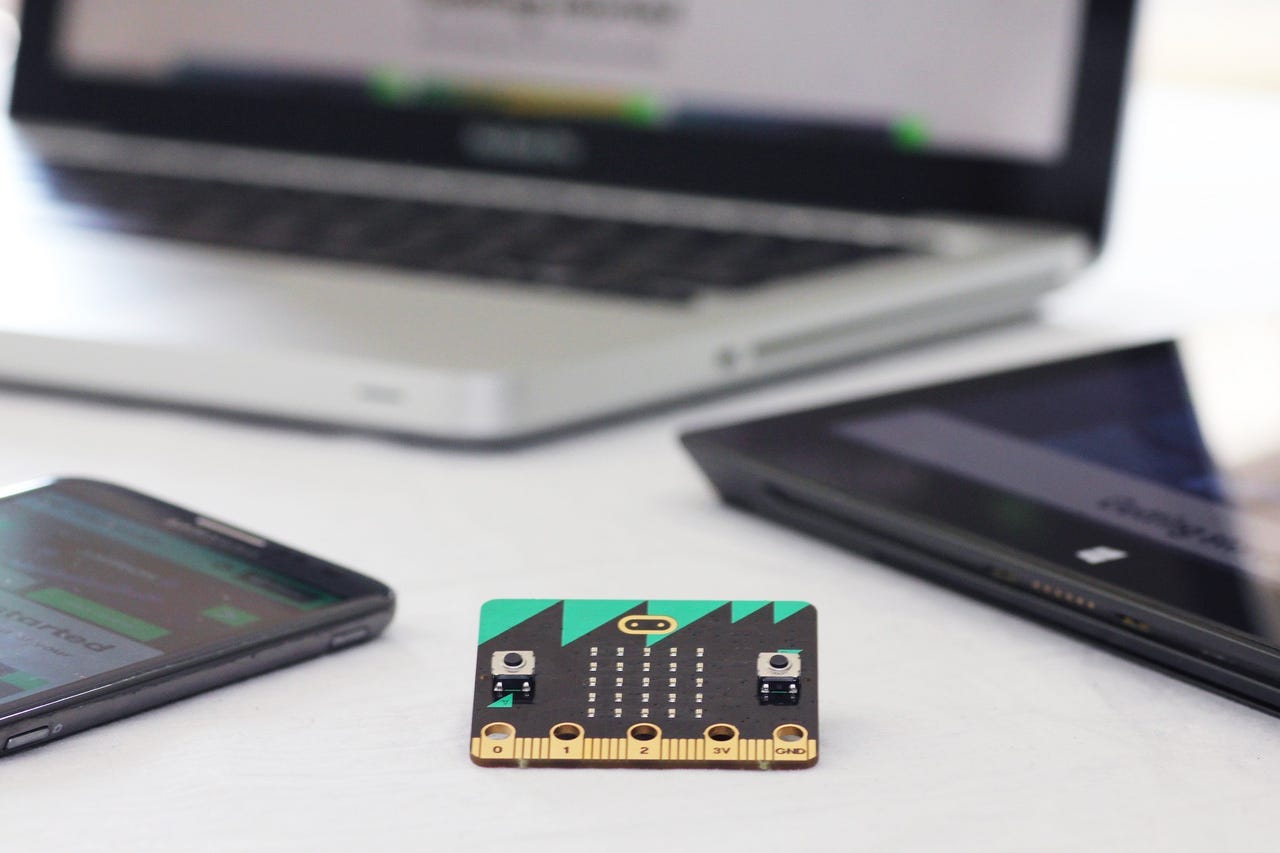BBC Micro Bit: Can one million of these tiny computers create the next generation of coders?


The BBC Micro Bit
The BBC had started delivering the first of its Micro Bit programming boards to students, a project which it hopes will help create the next generation of coders and tech entrepreneurs.
Up to one million of the devices will be delivered free to 11- to 13-year-olds in the UK, who can then use the board as the basis for building devices and programming projects.
Back in the 1980s, the BBC Micro -- a home computer developed with Acorn -- introduced many children to computing for the first time, and it is credited with sparking an interest in computing by many who later became tech entrepreneurs. The BBC hopes the new device can do the same.
The launch of the board has been delayed because the developers decided to make some minor revisions to the way power is supplied around the board. The boards were initially due to arrive in schools in late October and the plan was to deliver up to one million Micro Bits before the end of the year.
Here comes the BBC Micro Bit, the tiny board that wants to surpass the BBC Micro
BBC Micro Bits will be delivered nationwide through schools, and made available to home-schooled students, over the next few weeks and given to pupils to keep. As children move up through the school, they can keep using the same Micro Bit device. While the devices are aimed at pupils in years seven and eight, extra boards will be sent to teachers to extend their Micro Bit lessons to students in other year groups.
Following the nationwide rollout, the hardware and "much of" the software will be open-sourced, says the BBC. Micro Bits will be available to buy from a range of retailers. Money generated from these commercial sales will be used to encourage as many people as possible to join the coding revolution.
BBC director-general Tony Hall said the Micro Bit has the potential to be a seminal piece of British innovation "helping this generation to be the coders, programmers and digital pioneers of the future".
The board includes a 32-bit ARM Cortex M0 microprocessor with integrated ultra-low power Bluetooth. ARM also worked on the original 1981 BBC Micro computer.
The Micro Bit is manufactured by element14, while Lancaster University designed and developed the runtime. Microsoft developed the website to host code editors and has provided two coding languages: Microsoft Touch Develop, a text-based language, and Microsoft Block Editor, a graphical coding language. Nordic Semiconductor supplied the ultra low power Bluetooth chip, while NXP Semiconductor provided the microcontroller, the accelerometer, magnetometer and system-level electro-static protection device.